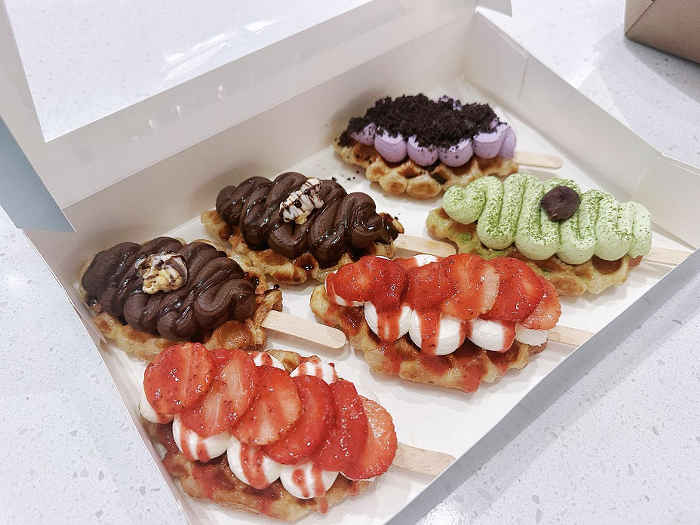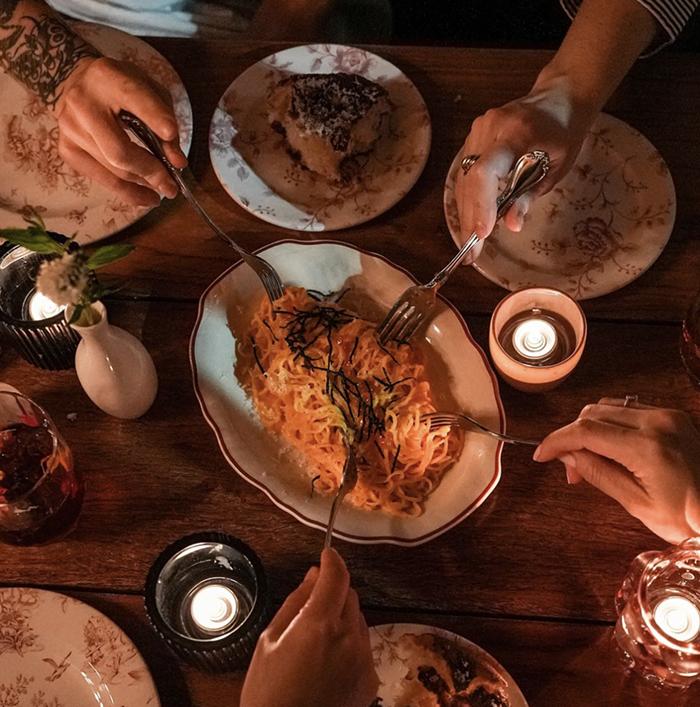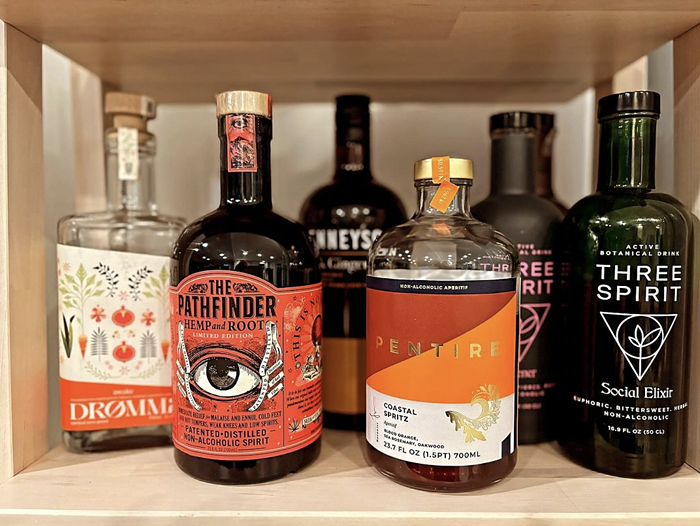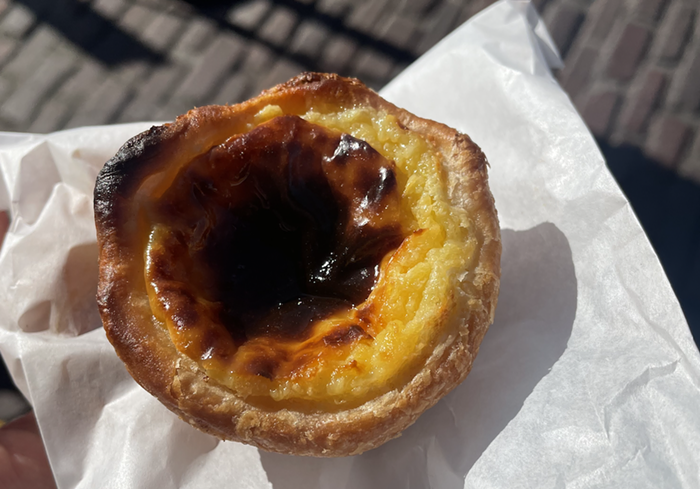Like all great stories and all great sandwiches, the origins of the French dip are clouded in mystery, the tale told and retold by various apostles until the original truth is completely obscured.
Here is the best version: It's 1908 at Philippe's, a dusty little deli in downtown Los Angeles. A beat cop (twirling his nightstick, shining his copper badge with his coat sleeve, his booshy moostache twitching) walks through the door one afternoon and asks Philippe Mathieu (known as Frenchy to his friends) for a beef sandwich. The last baguette on hand is a day old, and Frenchy, in a lightning- strike moment of cinematic majesty (Matrix-style slow motion, Vangelis's soaring score from Chariots of Fire, lots of Star Trek lens flares), notices the roasting pan full of beef drippings next to the cutting board and baptizes the hard bread to resuscitate it, then loads it full of sliced, roasted beef. Cut to a montage of runaway sandwich success, as word of Frenchy's Dipped Sandwich spreads through the L.A. police force and criminal underworld and on to the Jazz-Age hedonists of the Hollywood hoi polloi. A star is born.
On my first visit to Philippe's, almost 90 years later, unaware of the significance of this sandwich in the restaurant's (and the world's) history, I ordered a grilled cheese with soup. Rizzo's French Dip, located in Ballard, takes special precautions against anyone making an embarrassing mistake. There is only one thing on the menu at Rizzo's French Dip. The only choice you're allowed to make is "Cheese or No Cheese."
Tony Rizzo, a recent Los Angeles transplant, opened Rizzo's with his cousin Frank Rizzo. Tony stands at the back of the sandwich shop, shirt unbuttoned to midchest to reveal a large double- strand gold necklace nestled into his prodigious chest hair. From his well-gelled thinning hairdo to his crisply groomed beard to his leather loafers, he looks every inch the Italian sandwich-shop owner sent over from central casting. The restaurant, too, is right out of a scenic designer's sketchbook: red-and-white-checkered plastic tablecloths, a picture of Marilyn Monroe, and a cooler full of Coke. Even the second-unit direction is flawless, including the chef (Nathan, a formerly homeless kid whom owner Frank has mentored back to real life—yes, truly) emerging from the kitchen with a greasy apron and a flyswatter, trying over and over again to kill a bee buzzing through the room.
The sandwich itself, both with cheese and without, is, like the restaurant itself, perfect in its simplicity—there's no dressing, no lettuce, nothing to distract from the beauty of the meat. The beef is succulent, roasted in-house and hand-sliced, then left to simmer in its own juices for hours. The carrots, celery, garlic, and other vegetables and herbs roasted with the beef are liquefied and added to a house-made stock, into which about 12 inches of French bread is dipped before getting loaded up with beef. The bread is made from a custom recipe, baked only for Rizzo's by the Crown Hill Safeway. (There's something charming about baguettes custom-made at Safeway. On the one hand, designing a bread shows knowledge of breads beyond the basics, a desire to use the right bread for the right purpose. But having it made by one of the world's largest supermarket chains represents a blue-collar rejection of, or maybe just a disinterest in, the fashionableness of artisan bakers.) While the bread does its soggy job without losing structural integrity, there's no crunch, even straight out of Frank Rizzo's hands and eaten then and there. When you're creating a dish with so few moving parts, every element becomes that much more important, and here there are only three: meat, juice, and bread. The lack of any crispness in the bread, and the bread's uniformly dense interior, seems to dull the delicate spicing of the meat and juice, and prevents the sandwich from reaching its full, enormous potential.
Rizzo's is, as its name implies, a family operation: Frank, the patriarch, and an assortment of children, cousins, and mentored formerly homeless kids work in the shop together, and their familial passion for food is obvious. There's no music playing at Rizzo's, only a television in the corner tuned to the Food Network, and the youngest son, Sonny "Prince" Rizzo, talks about the various Food Network programs with the fluency kids usually have in baseball stats or skateboard wheels.
Anthony Rizzo, the teenager working the front counter, notes the irony of Rizzo's location, half a block from Lunchbox Laboratory, home of the universe's largest burger menu, with endless options of gourmet meat-cheese-toppings-sauce combinations. "With them and their 500 burger combinations," says Frank, "we've got like 501 things to eat on this block. We just got the one thing. When we took over this space, I looked at the kitchen, and it was tiny, everything's miniature, so I thought, 'If I just do one item, we'll have more than enough room.'"
The shop's been open almost two months now, and Frank says that while sales have been great, he still lost $184 last month. "But, you know, it's a place for the guys to get together, away from the wives and the girlfriends," he says. "I'd spend $184 to get away from my wife for a month." He's not gotten away very far, however; his wife, Tammy, is the psychic next door to the restaurant, and the team of formerly homeless kids he's helped lives in the house behind the shop. Rizzo's is about family, and food, and having built a family that includes blood, marriage, and choice. Frank—chef, patriarch—says, "So I got like a whole block over here of employees and family. Some days is love, some days we cuss each other out, but before we go to bed, it's always all love." ![]()



















